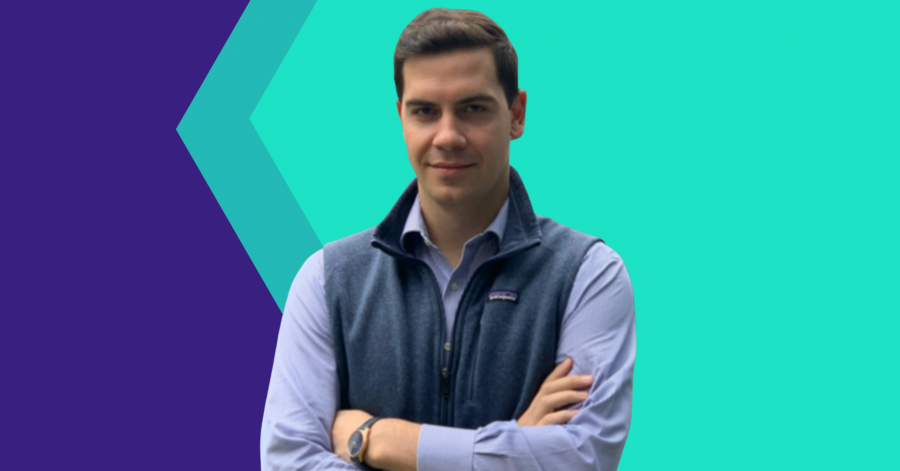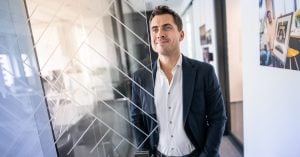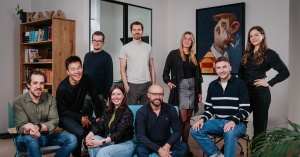Only in 2020, the venture capital community in the CEE region closed some 734 rounds with a total value of funding over €1B. Even though most of that amount came from Poland, Hungary, and Estonia, regional VCs especially those in Romania and Serbia are also picking up the pace. Investment activity in Serbia, for example, brought the largest value of CEE exits in 2019 with €357M, while local startups attracted 14% of the total financing of the region.
There is no better metric to evaluate growth than numbers, but it is equally important to see what stays behind them and what qualitative factors contribute to the development of the regional startup ecosystem. In order to bring some first-perspective insight into the conversation, we met with Pedja Predin who is the Investment Manager of the Serbian VC focused on early-stage high-growth startups South Central Ventures. Having international management experience in European growth-stage companies and being an active startup mentor and supporter, Predin shared for our team how he believes the entrepreneurial landscape in the region has changed, what are the biggest opportunities and challenges ahead of the startup community and how venture partners assess the growth potential of starting a business.
The Recursive: Are there any trends that you are particularly excited about investing in and if yes, why so?
Pedja Predin: I would like to start by mentioning 3 areas where I see a growing potential in the region. With such a strong base of SEE technical founders who are willing to combine their skills with the expertise of professionals in a specific vertical, deep tech is one such opportunity area. That is why I think that having a clear idea of how to leverage cutting-edge technology is one of the main drivers of the ecosystem. For me, the local startup stories with the biggest historical significance on the deeptech side are Seven Bridges Genomics and 3Lateral. The newer generation companies that are yet about to unleash their full potential include Orgnostic, which is our portfolio company, Trickest, which is in cybersecurity, and Anari AI.
The second interesting sector at the moment is blockchain and especially fintech as we can see that disruption and innovation are driving change and putting incumbent big banks and insurance companies under major pressure as customer acquisition costs are increasing. In addition, it is also important to improve financial literacy especially in regions like ours.
And the third rising opportunity area is remote work, which started a long time ago with the development of outsourcing software for local programming teams who were working with and for Western clients. Therefore, we have a long tradition of remote work, which gives local engineers a strong competitive advantage in developing intriguing remote work solutions in the future.
Do you believe that there are some overlooked and underestimated opportunities for founders in the SEE region right now and what types of mindsets do you wish were more abundant in the regional ecosystem?
Right now there are not so many opportunities for founders to build a strong and large sales organization locally, so many of them choose to set their sales teams in Western Europe or the USA. This disadvantage, however, is compensated by the fact that technical founders can use their skills to develop product features that can drive organic growth without an active salesforce. Such founders who have a strong technical mindset and solid technical setup are able to put the growth feature inside every solution with network or virality effects, even in B2B products. For example, the free time tracking software for teams Clockify, which is based in Novi Sad is growing steadily and attracting more and more business clients with a minimal sales team. As a whole, I believe that developing such scalable solutions is what regional founders are good at.
From your experience, witnessing how some startups thrive while others fail, how do you assess if you have come across a founder or a team that is doomed for success?
Even though there is no right recipe, ideally, the people in the founding team act as the two parts of the brain combining the technical mentality with the commercial one. From what I have seen in the past, having two or three co-founders usually works well – having more than that can be problematic while having a single founder means that there will be a lot of pressure put on his/her shoulders. We are looking for teams with good chemistry and cultural fit among each other. Besides building beautiful tech products, founders should have a deep understanding of the customer’s needs and should be able to empathize with their users in order to be able to sell their product, especially as they go global.
Finally, there is another element that we try to assess quickly but very often it can be tricky and complex: whether the founders really believe in a long-term vision and possess capabilities to build a large organization as well as not exit too soon. We have to say that we are happy with our founders and would like to see more people who have a big-picture mindset because that is the only way they can realize the full potential of their ventures.
Looking in the Western Balkans ecosystem, can you share what are the biggest developments that you have observed, and what are the factors that are still missing?
We are witnessing an increase in the Western European and US funds that are entering the region and the significance of that can be seen with the growth of companies such as UiPath, Infobip or Rimac. Less and less Western investors and VC funds perceive investing in regional and especially non-EU countries as exotic and we see how their attention is moving fast towards non-EU countries of the region
In the future, I would like to see more serial entrepreneurs and business angels from the diaspora who are coming back to or actively connecting with the region. For example, if after a successful exit, founders return back to the regional ecosystem, they can share their knowledge and invest their money into the ideas of the new generation. One element that can further accelerate innovation growth is having a strong direct connection with the diaspora.
Can you share what is the investment strategy that you apply in South Central Ventures and what are some of the most successful startups in your portfolio? And how about the status of the fund and your future plans and goals?
In terms of strategy, we are an early-stage fund and even though we are sector agnostic we are looking for scalable regional startups that can become global stories. That is probably why we have had much more B2B software companies. The ideal investment stage for South Central Ventures is when the startup has developed its early product and it already has some validation in terms of some customers and recurring revenues. Our role from then on is to help them build the organization, set up their go-to-market strategy, and get ready to fundraise. Two companies from our portfolio which have attracted the most attention in the past year are Cognism which recently raised a $12.5M series B round and operates in Northern Macedonia, Croatia, UK, and Switzerland, and the Belgrade-based workforce analytics and employee productivity platform WorkPlus.
In regards to our status, we started in late 2015 and since then we have built a mature portfolio of 25 companies in various growth stages. We are continually working with them and support them with follow-up rounds. Recently, we held rounds in AGRIVI and DaiBau in Croatia. Right now we are in the middle of discussions for follow-up investments and, in parallel, we are also in the closing fundraising stage and about to launch our new fund which is going to follow the same investment strategy.







